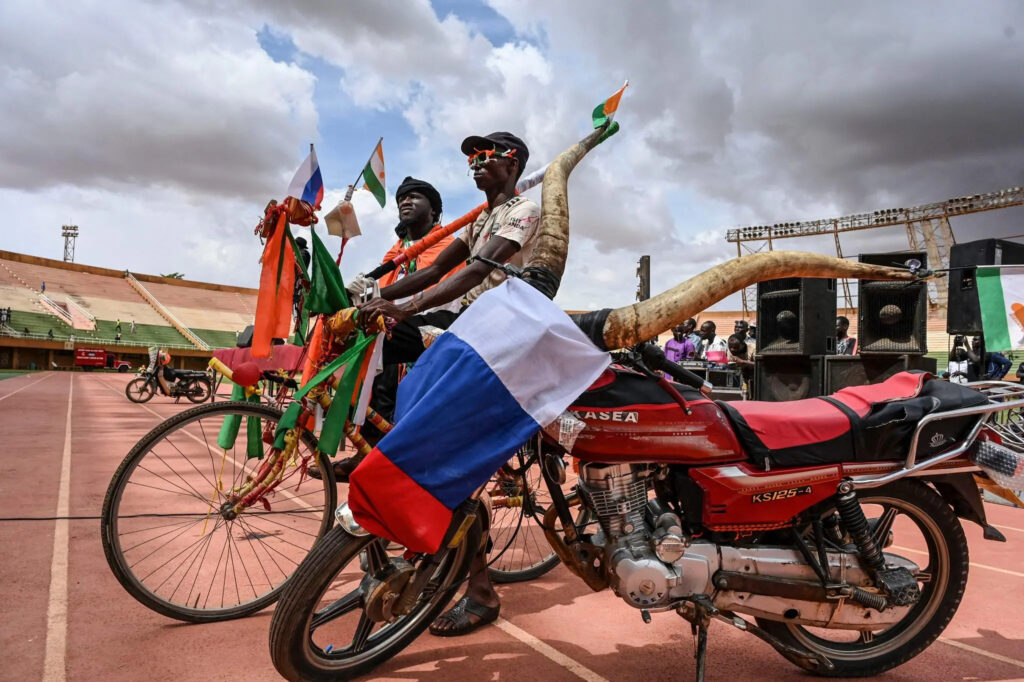
In West Africa, Russian flags are spreading: tricolors are used at protests, and taxi drivers attach them to car dashboards.
Amidst the sea of flags flying in a burst of patriotism in Burkina Faso, Mali, and, most recently, Niger, countries that have recently experienced military coups, the red, white, and blue flag of the Russian Federation has become a common sight, although it carries political overtones. It has become the most visible sign of a broad geopolitical shift in the region, along with Russian weapons and mercenaries.
“The Russian flag has become a symbol of resistance in West Africa, tied to anti-Western and anti-French sentiment,” said Kyle Walter, head of research at Logically, a technology company that has tracked the rise of pro-Russian and anti-French sentiment.
Analysts and some Western diplomats who track the flags’ origins are convinced that the Russian government financed their distribution to increase its influence.

Ahmed Bello, president of the Nigerian NGO PARADE, said that he distributed up to 70 Russian flags at each protest in Niamey, and that his work was funded by the Russian government through intermediaries who conducted similar operations in Mali.
“It is with them that we are working to develop the expansion of Russian ideology in Africa,” he said.
However, for some, the Russian flag has also become a way to make a political statement.
“Russia is perceived by many young Africans as an anti-colonial power designed to help them get rid of the colonial past and write a new chapter in their national history that has nothing to do with democracy, which many associate with exploitative partnerships with Western countries, corruption and poverty,” the author of the article writes.
Similar phenomena are also observed in neighboring Burkina Faso and Mali, where military-led governments seized power in coups in recent years and then teamed up with Russia for military cooperation.
On September 25, it was reported that France had decided to withdraw its troops and ambassador from Niger. Immediately after the overthrow of the president in Niger, the junta issued an ultimatum to France to withdraw its troops. At first, Macron refused to do so, but now the 1,500-thousandth contingent will be withdrawn by the end of the year.

